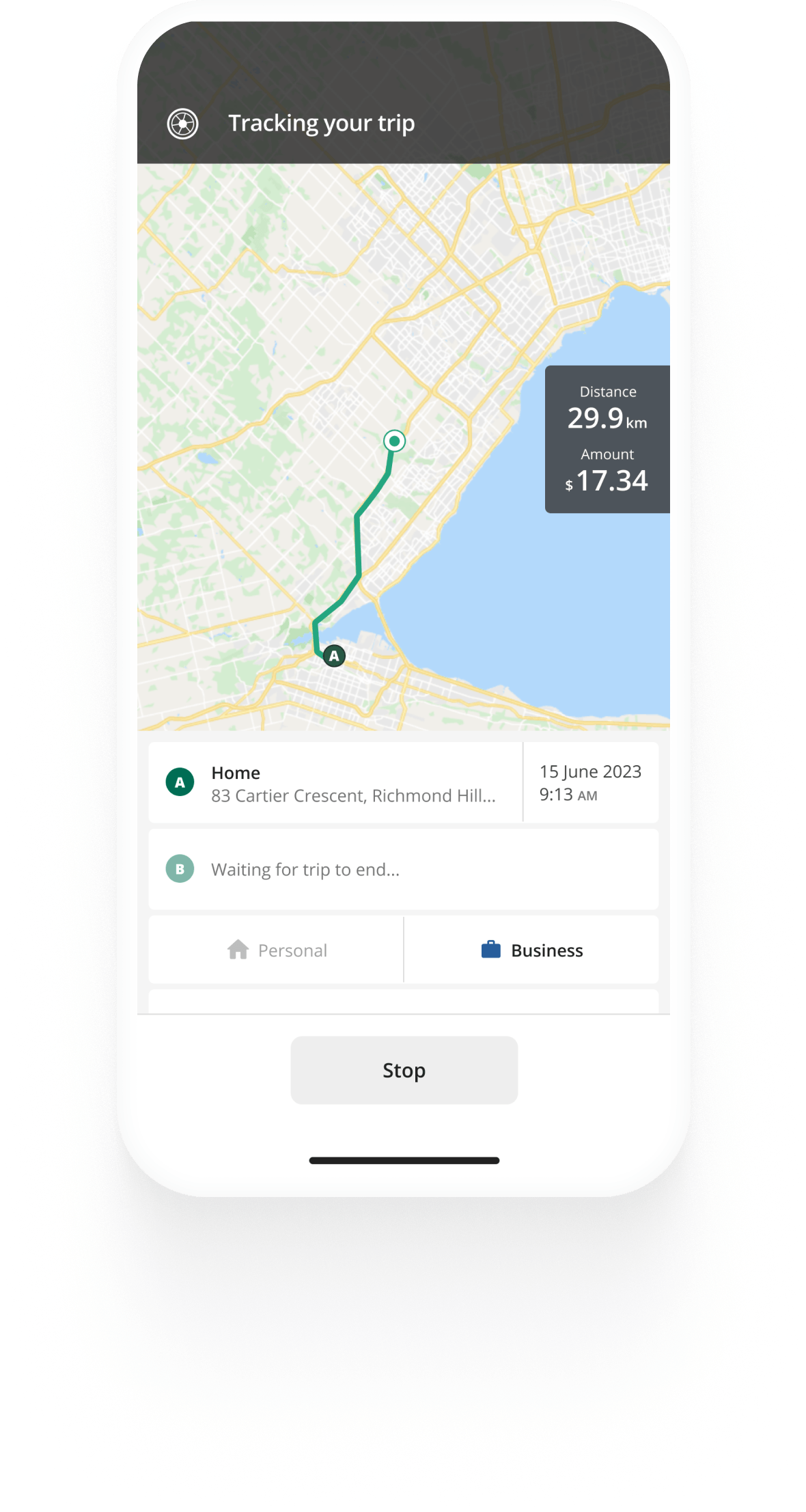Track mileage automatically
Get started.svg)
Car Allowances for Employees in Canada
Car allowances are payments an employee gets from their employer for using their personal vehicle while working. The regular payment is intended to be put toward either buying or leasing a vehicle.
The amount will be applied to your salary or wages if you are eligible for a car allowance. Unless it is calculated using a reasonable per-kilometre rate, car allowances are taxable.
In addition, no mileage logs or proof of business usage of the car allowance are required. You just go about your business and take advantage of what is effectively a benefit. The choice of whether to utilise the car allowance for a car payment or to cover gas prices, wear and tear, and other automotive expenses is left up to you.
The ease of the car allowance for employees is one of its benefits. It is simple to manage, implement, and account for.
How you can use car allowances
You can use the car allowance you receive to purchase or lease a vehicle. It's possible that you may spend the car allowance just to keep your current vehicle in good working order, too. You will be responsible for paying registration fees, insurance premiums, and any other associated costs. You could use the car allowance for really any expenses you wish, as you don't need to prove to your employer how you spend it.


Track business driving with ease
Trusted by millions of drivers
Automate your logbook Automate your logbook

Automatic mileage tracking and CRA-compliant reporting.
Get started for free Get started for freeAre car allowances taxable in Canada?
Fixed monthly vehicle allowances that cover your work-related car expenses are taxable as part of your income in Canada.
Your employer must pay taxes on your car allowance if they pay it at a rate per work kilometre that is significantly higher or lower than the CRA's established reasonable rate.
However, your reimbursement will be tax-free if your company uses the official CRA automobile allowance rate per km based on the actual business miles you drive.
The official rate per business kilometre for 2026 is 73 cents. After the first 5,000 km, the rate drops to 67 cents per kilometre. Read more about the per-kilometre CRA rate for 2026.
The CRA views a car allowance as reasonable if:
- The allowance is based on a per-kilometre amount.
- The per kilometre amount is less than or equal to the official rate (the CRA determines the prescribed rate as a per-kilometre amount); and,
- The cost of utilising the vehicle is not covered in full or in part by the employer.
In this case you will have to keep a logbook of your business driving that adheres to the CRA requirements for keeping a mileage log. You can also read about the general rules on mileage reimbursement and deductions in Canada in our mileage guide.
We recommend automating your mileage recording with a mileage tracker like Driversnote, which will save you time and ensure compliant logs for your car allowance.
Is it possible to deduct business mileage while getting a car allowance?
You might be eligible to deduct mileage on your annual tax return if your company doesn't also reimburse you for your business travel expenses, or if you receive a car allowance that is taxable.
You should keep copies of all the expense reports submitted for the year, together with all the car charges incurred, in order to claim these costs. If more than one car is used, you should keep a thorough expense report for each vehicle.
FAQ

Tired of logging mileage by hand?
Effortless. CRA-compliant. Liberating.
Top posts
Related posts
Travel Expenses for Employees
Latest update: January 16, 2026 - 2 min read
Need to know how to receive travelling expenses reimbursement from your employer? Learn about CRA travel expenses and if they are taxable as part of your income.
Car Allowances for Employees in Canada
Latest update: January 16, 2026 - 2 min read
Learn everything about car allowances for employees in Canada in 2026 - see if your car allowance will be taxed and what you can use it for.
How to Claim Mileage on Taxes
Latest update: January 16, 2026 - 5 min read
Employees and self-employed may claim mileage and reduce their taxes when using a vehicle for business. Methods and forms explained.

